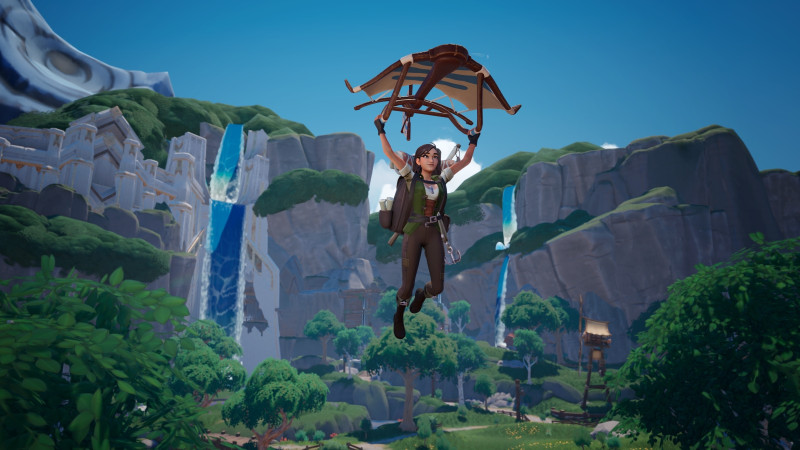
Platform: Switch, PC
Developer: Singularity 6
Life sims can be great stress relievers by letting you build a digital life from the ground up at a leisurely pace. However, many of those titles offer freeform experiences where more purpose-driven players may struggle with having to make their own fun. Palia aims to satisfy both crowds by tossing dozens of players into a fleshed-out fantasy world to build a life while also embarking on an epic quest. I made a new life for myself within developer Singularity 6’s upcoming free-to-play life sim MMO. While much of it feels familiar, the promise of building a home alongside friends while unraveling a central mystery is enticing for the genre.
As a custom-created human avatar, players are, quite literally, dropped into the world of Palia. Humans occupied this land at some point but have long been extinct. A colorful race of human-esque creatures called Palians has inherited the world and knows humans only through legend and archeological evidence. Not only have you suddenly crashed into this world, but many other human players have too. How did you get here, and why? I’m not sure, but it’s a big enough carrot to invite my curiosity.
Palia borrows a few notes from the recent Zelda games by letting players climb most surfaces (complete with stamina meter) and, eventually, gain a glider. After venturing from the starting temple into the town below, I begin greeting Palia’s personable inhabitants. Palia operates on a day/night cycle, and citizens have jobs, homes, and schedules. As such, they move around instead of acting like living sign posts. Thankfully, the map usually keeps track of their current location, though flagging them down when you need to turn in a quest can be a nuisance if they’re on the move. Chatting with them or solving their problems raises your friendship level, which offers rewards for each milestone. Another way to butter them up is by satisfying their weekly requests. If you really lay on the charm, you can even become romantically involved with your neighbors, though I didn’t play nearly enough to swoon over any potential lovers.
I receive my first task of crafting my starting piece of shelter: a tent. Visiting my homestead, I find a plot of land overgrown with trees, littered with stones and debris. Clearing it out is as simple as selecting my axe from an item wheel and chopping away. Collected materials occupy an inventory accessible by hotkeys. While the UI is easy to navigate, Palia’s controller support is limited at the moment. If you prefer a gamepad as I do, some actions don’t translate to buttons (even some basic menu scrolling), so a mouse and keyboard are the way to go for now.
Once I’ve cleared my plot and accumulated enough materials, I build my tent and some key furniture, such as a storage box, wardrobe, and chair. Placing objects is easy thanks to an in-game grid overlay to situate items exactly where you want them. An overhead view allows for even more precise decorating. It doesn’t take long before I have everything where I want them to be, which brings me to my next job: farming.
Functionally, farming isn’t drastically different from similar games: you plow land, plant seeds, and water them until they’re good to eat. However, one neat strategic touch is that crops have individual traits and perks that promote thoughtful plant arrangement. For example, carrots may have a perk that protects nearby crops from weeds. Applying different types of fertilizer also adds buffs. Tilling the land can also unearth unique treasures or, in the beginning, a main quest item. Grown veggies can be sold or cooked, the latter of which offers several gastronomical options thanks to a suite of tools and items.
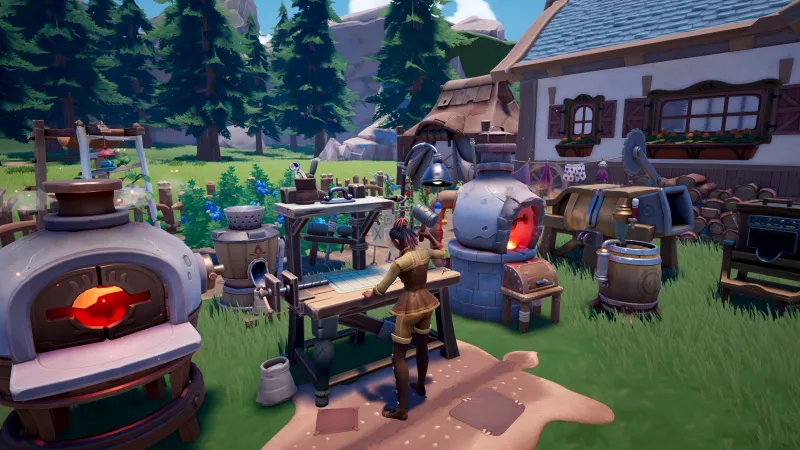
You can place a prep station, mixing station, stoves, and more to create dishes from a list of collectible recipes. These kitchen tasks have minigames attached to them; chopping food is a timing game where you hit nodes, for example. Cooking occurs under a time limit, and overcooking leads to burnt food. Thankfully, though, you can’t start any kitchen fires. Unfortunately, I didn’t play long enough to build a kitchen and try these systems out myself. Eating food builds Focus, a bar that is essentially your stomach. Having more Focus raises your effectiveness in performing actions, and a full bar grants bonuses to all experience gained. Thus, to get the most out of everything you’re doing, you’ll want to keep plenty of prepared dishes or raw food to snack on.
Activities such as these raise your proficiency in certain skills which, in turn, makes you better at them while unlocking better equipment. Eight initial skills – fishing, cooking, gardening, mining, hunting, bug catching, foraging, and furniture making – all have associated masters. Each master has a level that adds new items to their respective stores. Hitting level 10 in a skill switches to earning skill medals to buy special store items such as cosmetic trophies. All of this feeds into your overall player level, and with no level cap, that number can reach the thousands.
Now that I have the foundational tent and items made, I bring a glowing item I found while plowing to the town scientist, who informs me it’s a key. I take it behind a waterfall hiding a doorway that opens the way to ancient ruins. I find other doorways like this while exploring freely, each presenting a unique puzzle. The first I encounter gives me a riddle to fill a ritual bowl with a vital ingredient to life. I won’t spoil the answer, but the solution opens a pathway leading to a grander area of underground ruins tied to the game’s initial mystery: what was humanity, and what ultimately happened to it?
Naturally, given the genre and the game’s MMO nature, things unfold at a laid-back pace. Various processing machines like a sawmill takes time to produce their output. Quests often only progress once a person contacts you, usually via mail, so you’ll be killing time completing other errands until that happens. NPCs retire home at night, meaning you generally can’t turn in outstanding quests until morning. Managing various meters and timers to ensure an effective pipeline has always been an appealing element of life sims for management-minded players, and the same is true here. But if you’re a newcomer to the scene who’s more attracted by the main questline and the cooperative multiplayer, playing on Palia’s time rather than yours will be an adjustment; the journey is often the destination in this type of experience.
Although I didn’t interact with the scant players roaming this pre-beta period, Palia’s communal vibe is another inviting draw. Whether meeting new pals on the road or playing in a party of established friends, working together to gather resources rewards everyone involved. If someone comes to chop wood with you, you’ll both get loot. Plus, people can’t steal your stuff. You can visit each other's homesteads to show off your hard work while also gifting furniture and other goods. One neat feature is the ability to post public calls for donations of needed materials, meaning charitable players can help you hit those goals faster.
I’d have to play a lot more Palia to find out, but what I’ve seen so far has offered a cozy good time. The game’s potential is evident even in the early goings, and I’m curious to see how its story evolves alongside your homestead. The promise of doing all this alongside a good group of friends is an attractive cherry on top. Palia’s closed beta begins today, but everyone else gets to jump in when the open beta kicks off on August 10. While these betas are PC-only, Palia is also slated to arrive to Switch down the line. Singularity 6 has crafted a strong foundation thus far, and I look forward to seeing how they continue to lay bricks as more players call Palia their new home.
PurchaseHope to see you in Next Article Soon!

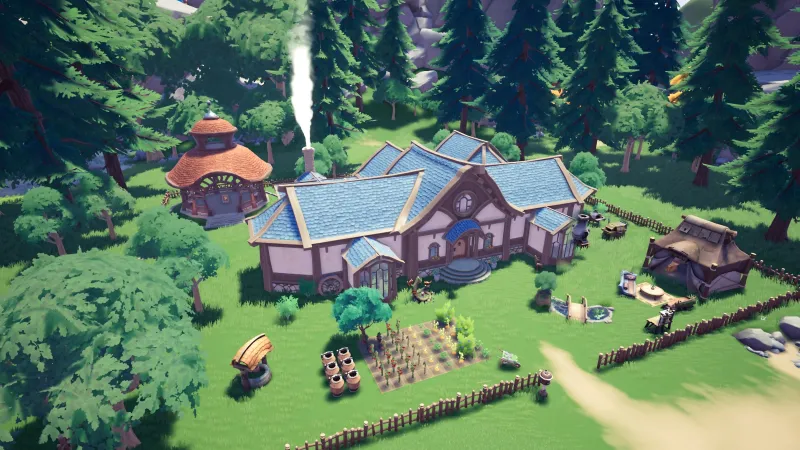
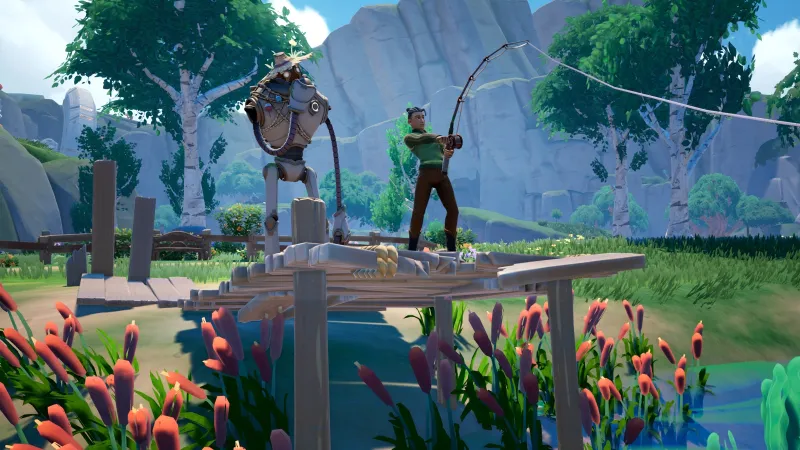
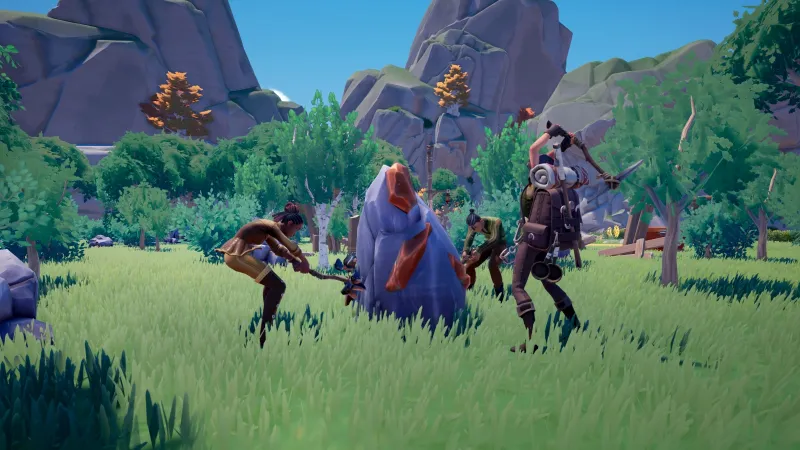
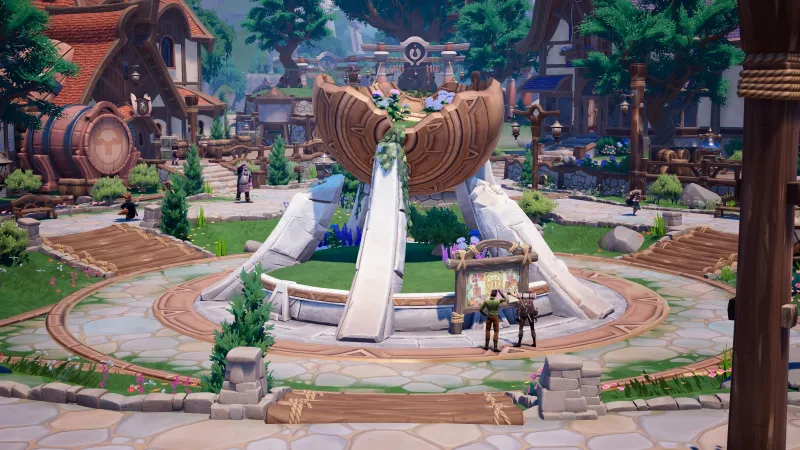

No comments:
Post a Comment